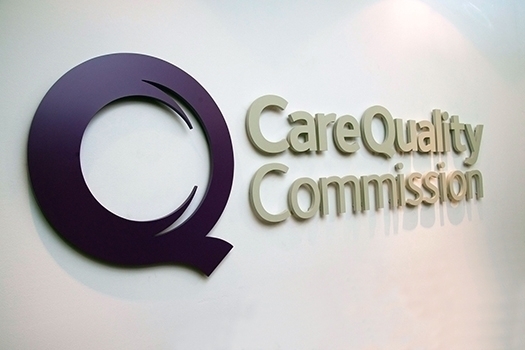There is ‘room for improvement’ to the CQC’s regulatory system, with GP practices among those least likely to improve as a result of the approach.
This is the finding of a major Government-funded evalutation of the CQC’s latest inspection regime, that was launched from 2013 onwards.
In response the evaluation, carried out by researchers from the King’s Fund and University of Manchester, concluded that CQC should adapt its regulatory approach to the type of health service provider it is dealing with.
The research, funded by the National Institute for Health Research (NIHR), pointed to qualitative evidence of ‘providers… making improvements to organisational processes and to services’ in anticipation of their CQC inspection. However, the report said there was ‘significant differences in the way that impact works across… sectors’.
Citing the lack of opportunities for improvement for struggling GP practices, the report said the finding ‘highlights the potential for CQC to develop its model in different ways in each sector’.
The report said: ‘Inspection and rating have dominated CQC’s regulatory model, consumed most of its available regulatory resources, and may have crowded out some other potential regulatory activities that might be more impactful.’
Other findings from the report included:
- The Intelligent Monitoring (IM) datasets that the CQC used to risk assess provider performance and prioritise inspections – which came under severe criticism from GPs for publicising concerns ahead of actual inspection, and prompted an apology from the CQC – had ‘little or no correlation with the subsequent ratings of general practices’.
- CQC inspection and rating ‘had small and mixed effects on key performance indicators in accident and emergency services (A&E), maternity services and general practice prescribing’.
- Although researchers had expected patients to shun certain providers based on poor CQC ratings, looking at how prospective parents chose maternity services they found there was ‘little measureable impact’ on service volumes for providers with an ‘inadequate’ rating.
- The report noted the CQC’s intention to implement a new strategy following the completion of the first cycle of inspections and ratings – set to be more intelligence-led and incorporate more unannounced inspections – saying the plan ‘addresses some of the issues raised in our research’.
Ruth Robertson, report author and senior fellow at The King’s Fund said: ‘Although we heard general support for their new approach, we also uncovered frustrations with the process, some unintended consequences and clear room for improvement.’
‘We found that CQC’s approach works in different ways in different parts of the health and care system. When CQC identifies a problem in a large hospital there is a team of people who can help the organisation respond, but for a small GP surgery or care home the situation is very different.
‘We recommend that CQC develops its approach in different ways in different parts of the health system with a focus on how it can have the biggest impact on quality.’
BMA GP Committee chair Dr Richard Vautrey said: ‘Proportionate and appropriate regulation can lead to good quality care for patients, and while the CQC is taking steps to improve the way it operates, this report highlights a number of issues with how inspections impact general practice.
‘It rightly notes that GP practices have less capacity to improve than other providers, often because of historic underfunding or support from their local CCG and previous PCT, but despite this, it is testament to the hard work of GPs and their teams that the vast majority are now rated good or outstanding – which is far higher than in any other major sector. Inspections can be disruptive for practices and their staff, and the associated workload takes GPs away from providing direct patient care.
‘It is therefore positive that this report recognises the flaws in this system and proposes that regulators’ efforts would be improved through the use of diverse strategies other than comprehensive inspection.’
CQC chair Ian Trenholm said it was ‘good to see’ the improvement work it is already undertaking ‘explicitly recognised by the report’.
He added: ‘Health and social care regulation makes a real and practical difference to people’s lives – there needs to be a strong, independent regulator who will always act on the side of people who use services. In an environment of pressure and change, we’ll continue to evolve our model to support the system to improve – and take action to protect people where necessary.
‘We know our work is already leading to improved services and better care and there is strong support for what we are doing from the public and providers. With our next phase approach we are building on this work and moving forward, to ensure that more people get good care, more of the time.’

















